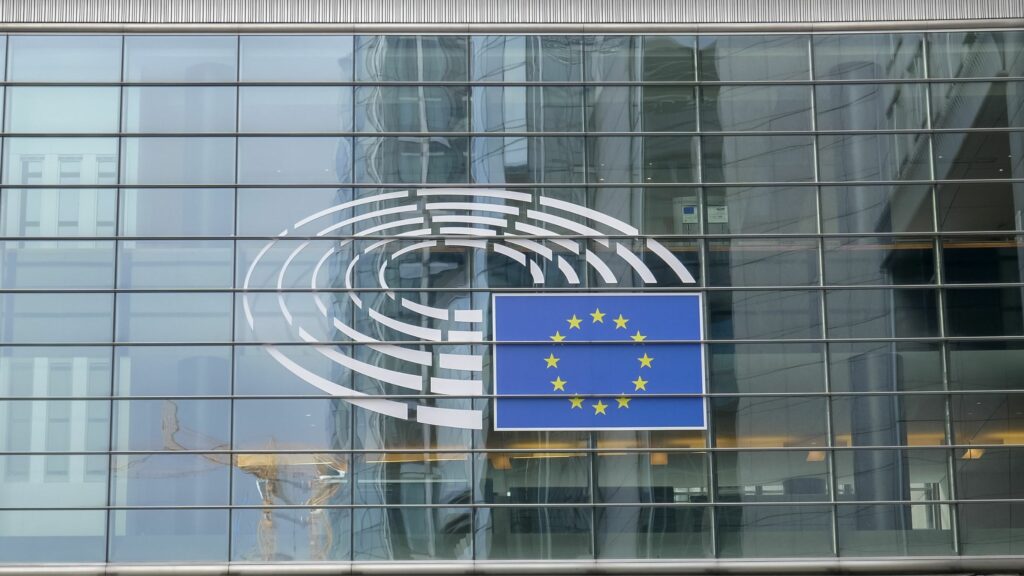Introduction On 2 April 2025, the General Court, in case T‑398/21, Ryanair v Commission, dismissed yet another appeal by Ryanair against a Commission decision on aid to airlines whose purpose was to redress the impact of covid-19.[1] In particular, Ryanair sought the annulment of Commission decision on SA.59158 concerning Polish State aid to LOT airlines. The aid was authorised by the […]
State Aid Law
Blog
State Aid Uncovered Blog
In Lexxion’s State Aid Uncovered blog, Prof. Phedon Nicolaides publishes weekly critical analyses of recent State aid judgments and decisions. Each post presents the key points of a court judgment or EU Commission decision, places it in the context of similar case law or practice, assesses the underlying reasoning and highlights any inconsistencies or contradictions.
Guest contributions from other State aid experts will also be published on the blog at irregular intervals to complement the content of the blog posts.
22. April 2025 |
Article 107(3)(b),Commission decision on SA.59158,discrimination,proportionality,recapitalisation,Ryanair v Commission,T 398/21,undertaking in difficulty
by Phedon Nicolaides
15. April 2025 |
State Aid Uncovered
by Phedon Nicolaides
Introduction State assets which are put at the disposal of undertakings must be made available at a market rate. Free use or use at a price below the market rate means that the state forfeits potential revenue that constitutes transfer of state resources. If all the other criteria of Article 107(1) TFEU are satisfied, the free or preferential use of […]
8. April 2025 |
State Aid Uncovered
by Phedon Nicolaides
Introduction The assessment by the Commission of the possible effect of State aid on intra-EU trade can be summarised in the following three-step test whose purpose is to determine whether such an effect is foreseeable [i.e. not hypothetical]: the aid must support products or services that are traded, or, in the absence of such a direct effect; the recipient undertaking(s) […]
1. April 2025 |
State Aid Uncovered
by Phedon Nicolaides
Introduction Very often Member States claim that subsidies they grant as compensation for the costs incurred by the recipient undertakings do not confer an advantage to them and therefore do not constitute State aid. The Court of Justice of the EU [CJEU] has on the whole rejected this claim even if the subsidy is less than the costs which are […]
25. March 2025 |
State Aid Uncovered
by Phedon Nicolaides
Introduction On 12 March 2025, the General Court delivered its judgment in case T-596/22, PGI Spain, & Others v Commission.[1] PGI and the other applicants sought the annulment of Commission decision on SA.102454 and SA.102569 concerning a joint Spanish and Portuguese measure on the reduction of the electricity wholesale price in the Iberian peninsula. In May 2022, Spain and Portugal […]
18. March 2025 |
State Aid Uncovered
by Phedon Nicolaides
Introduction Significant changes have occurred in the postal sector across Europe. Partly as a result of the covid-19 pandemic and partly due to technological evolution, letter deliveries have declined precipitously while parcel deliveries have increased substantially. At the same time digital mail has become ubiquitous. For example, in early March 2025, NordPost, the postal incumbent in Denmark and Sweden announced […]
11. March 2025 |
State Aid Uncovered
by Phedon Nicolaides
Introduction Public land is a public asset that must be priced correctly when rented out to third parties. The problem is that in most cases rented out plots of public land are either too large or are in unusual places. In either case, comparable commercial transactions are difficult to find, especially if transactions in such plots are infrequent. In these […]
4. March 2025 |
State Aid Uncovered
by Phedon Nicolaides
Introduction The Commission, in decision 2025/317, spanning 60 pages with close to 300 recitals and concerning the special tax treatment of public casino operators in Germany, found that that treatment constituted unlawful and incompatible State aid that had to be recovered.[1] Following a complaint by the German association of gambling machine operators [Fachverband Spielhallen], the Commission examined i) special tax […]
25. February 2025 |
State Aid Uncovered
by Phedon Nicolaides
Introduction State aid to rescue a company and finance its restructuring is considered to be the most distortionary form of aid. However, it is allowed only to prevent serious social harm and only after notification to and assessment by the Commission. The compatibility assessment is always exhaustive and seeks to establish, among other things, whether State aid is the only […]
18. February 2025 |
State Aid Uncovered
by Phedon Nicolaides
Introduction State aid rules are, in general, less favourable to large companies mostly because they have more own funds, access to cheaper finance [mostly due to longer track record and higher credit ratings] and are more mobile so that regional handicaps have a lesser effect on them. Size also brings other advantages such as the ability to hire top economic […]
15. April 2025 |
State Aid Uncovered
by Phedon Nicolaides
Introduction State assets which are put at the disposal of undertakings must be made available at a market rate. Free use or use at a price below the market rate means that the state forfeits potential revenue that constitutes transfer of state resources. If all the other criteria of Article 107(1) TFEU are satisfied, the free or preferential use of […]
8. April 2025 |
State Aid Uncovered
by Phedon Nicolaides
Introduction The assessment by the Commission of the possible effect of State aid on intra-EU trade can be summarised in the following three-step test whose purpose is to determine whether such an effect is foreseeable [i.e. not hypothetical]: the aid must support products or services that are traded, or, in the absence of such a direct effect; the recipient undertaking(s) […]
1. April 2025 |
State Aid Uncovered
by Phedon Nicolaides
Introduction Very often Member States claim that subsidies they grant as compensation for the costs incurred by the recipient undertakings do not confer an advantage to them and therefore do not constitute State aid. The Court of Justice of the EU [CJEU] has on the whole rejected this claim even if the subsidy is less than the costs which are […]
25. March 2025 |
State Aid Uncovered
by Phedon Nicolaides
Introduction On 12 March 2025, the General Court delivered its judgment in case T-596/22, PGI Spain, & Others v Commission.[1] PGI and the other applicants sought the annulment of Commission decision on SA.102454 and SA.102569 concerning a joint Spanish and Portuguese measure on the reduction of the electricity wholesale price in the Iberian peninsula. In May 2022, Spain and Portugal […]
18. March 2025 |
State Aid Uncovered
by Phedon Nicolaides
Introduction Significant changes have occurred in the postal sector across Europe. Partly as a result of the covid-19 pandemic and partly due to technological evolution, letter deliveries have declined precipitously while parcel deliveries have increased substantially. At the same time digital mail has become ubiquitous. For example, in early March 2025, NordPost, the postal incumbent in Denmark and Sweden announced […]
11. March 2025 |
State Aid Uncovered
by Phedon Nicolaides
Introduction Public land is a public asset that must be priced correctly when rented out to third parties. The problem is that in most cases rented out plots of public land are either too large or are in unusual places. In either case, comparable commercial transactions are difficult to find, especially if transactions in such plots are infrequent. In these […]
4. March 2025 |
State Aid Uncovered
by Phedon Nicolaides
Introduction The Commission, in decision 2025/317, spanning 60 pages with close to 300 recitals and concerning the special tax treatment of public casino operators in Germany, found that that treatment constituted unlawful and incompatible State aid that had to be recovered.[1] Following a complaint by the German association of gambling machine operators [Fachverband Spielhallen], the Commission examined i) special tax […]
25. February 2025 |
State Aid Uncovered
by Phedon Nicolaides
Introduction State aid to rescue a company and finance its restructuring is considered to be the most distortionary form of aid. However, it is allowed only to prevent serious social harm and only after notification to and assessment by the Commission. The compatibility assessment is always exhaustive and seeks to establish, among other things, whether State aid is the only […]
18. February 2025 |
State Aid Uncovered
by Phedon Nicolaides
Introduction State aid rules are, in general, less favourable to large companies mostly because they have more own funds, access to cheaper finance [mostly due to longer track record and higher credit ratings] and are more mobile so that regional handicaps have a lesser effect on them. Size also brings other advantages such as the ability to hire top economic […]
11. February 2025 |
State Aid Uncovered
by Phedon Nicolaides
Introduction A perennial question is whether competitors of aid recipients have legal standing to appeal against Commission decisions that either authorise aid or find that a public measure does not constitute State aid. The answer depends on whether the Commission decision is adopted without the opening of the formal investigation procedure or after a form investigation. It is easier to […]
25. September 2024 |
Guest State Aid Blog
by Lexxion Publisher
Guest State Aid Blog by Professor Leigh Hancher, Nicole Robins and Dr Philipp Schliffke[1] 1 Introduction The Renewable Energy Directive 2018/2001 (‘RED II’) states that ‘the promotion of the production and use of biomethane, its injection into a natural gas grid and cross-border trade create a need to ensure proper accounting of renewable energy as well as avoiding double incentives […]
16. November 2023 |
Guest State Aid Blog
by Michał Bernat
The Interplay of R&D Works and Formal Incentive Effect Rules Michał Bernat.1 The issue mentioned in the title appears at first sight rather uncontroversial, as it is instinctively understood that research and development (R&D) works do not form part of an investment towards which they are directed, but this brief note raises certain issues arising in that respect which have […]
30. March 2023 |
Guest State Aid Blog
by Lexxion Publisher
We’re happy to announce that Lexxion publisher has become a media partner to the FIDE Congress, one of the most distinguished events on EU law. Of particular interest for the readers of the State Aid blog and the EStAL quarterly is the second topic of the congress, dedicated to the new geopolitical dimension of the EU competition and trade policies. […]
30. June 2022 |
Guest State Aid Blog
by Lexxion Publisher
Reading the Editorial by Andreas Bartosch (EStAL 1/2022, 1), I feel tempted – not to worship Satan or the GBER, but to add some more colours to the picture drawn up by the esteemed colleague. It is true that the Block Exemption Regulations were intended to save the Commission Services from „lästigem Alltagsgerümpel“ (“boring routine rubbish”, as Andreas Bartosch dubbed […]
27. May 2022 |
Guest State Aid Blog
by Lexxion Publisher
A recent FSR Debate[1] held on 4 May examined the key question of how policymakers and regulators can avoid carbon lock-in jeopardising the attainment of the European Union’s ambitious energy and climate targets. Carbon lock-in refers to situations where emissions-intensive energy assets continue to be used even when low-carbon and socially more beneficial assets are available. This is a controversial […]
19. August 2021 |
Guest State Aid Blog
by Lexxion Publisher
The article is based on a legal opinion, that was given to LEAG. Doubts regarding the existence of an advantage – continued Compensation amounts based on a MEO settlement agreement An essential component of the compensation covering the full scope of any damages caused to the operators affected by the early closure is also the avoidance of legal and factual […]
12. August 2021 |
Guest State Aid Blog
by Lexxion Publisher
The article is based on a legal opinion, that was given to LEAG. Introduction The European Green Deal envisages a clean and decarbonised energy sector with net-zero greenhouse gas emissions by 2050.[1] These ambitious objectives entrust the Member States with enormous tasks in connection with the transformation process, which must always be designed in a proportionate manner. For this purpose, […]
29. July 2021 |
Guest State Aid Blog
by Lexxion Publisher
The persistently cautious approach of the Court of Justice of the European Union (CJEU) to recognizing any really meaningful rights for third parties in State aid proceedings before the European Commission as well as in judicial proceedings is well-known and frequently criticized. With the recent adoption of the new Climate Law at the end of June and the official launch […]
15. July 2021 |
Guest State Aid Blog
by Lexxion Publisher
As part of the investments to support the digitisation, innovation and competitiveness of the production system[1], the Italian Recovery and Resilience Plan (NRRP) has allocated €6.71 billion for interventions in favor of ultra-fast networks (ultra-broadband and 5G)[2]. The amount will be deployed by 2026 to achieve the objectives defined in the “Italian Strategy for ultra-broadband”[3] in accordance with the EU […]
8. July 2021 |
Guest State Aid Blog
by Alexander Rose
The long awaited Subsidy Control Bill has been published by the UK Government with bold promises that it will “create a new system for subsidies that can enable key domestic priorities, such as levelling up economic growth across the UK and driving our green industrial revolution“. In this article we identify the main changes immediately emerging from the draft legislation, […]























